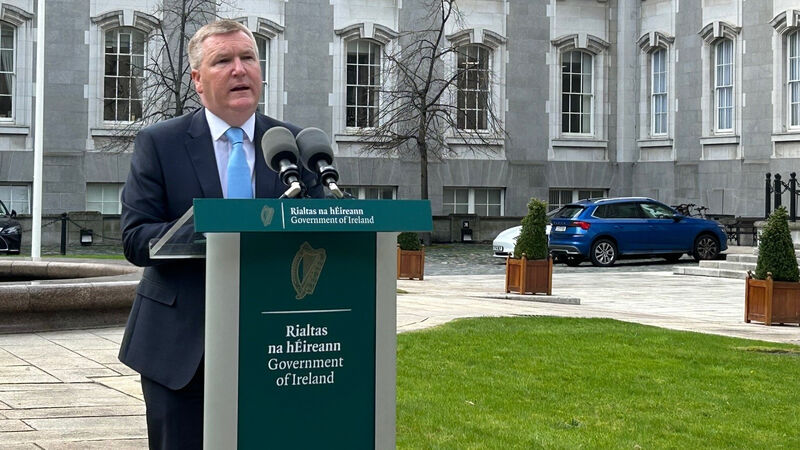Finance Minister warned against election tax cuts as budget surplus heads to €8.6bn

As the Irish exchequer heads for massive budget surpluses for years to come, leading economists have warned Finance Minister Michael McGrath against cutting taxes. Picture: Cillian Sherlock/PA
Finance Minister Michael McGrath shouldn’t bend to political temptation in an election year to inject more money by way of unnecessary tax cuts, as the exchequer heads for massive budget surpluses for years to come, leading economists have warned.
In an economic update, the Government has projected that a record inflows of tax revenues will boost the annual budget surplus to a better-than-expected €8.6bn this year, and has forecast the State will generate total surpluses of €38bn over the next four years through 2027.














